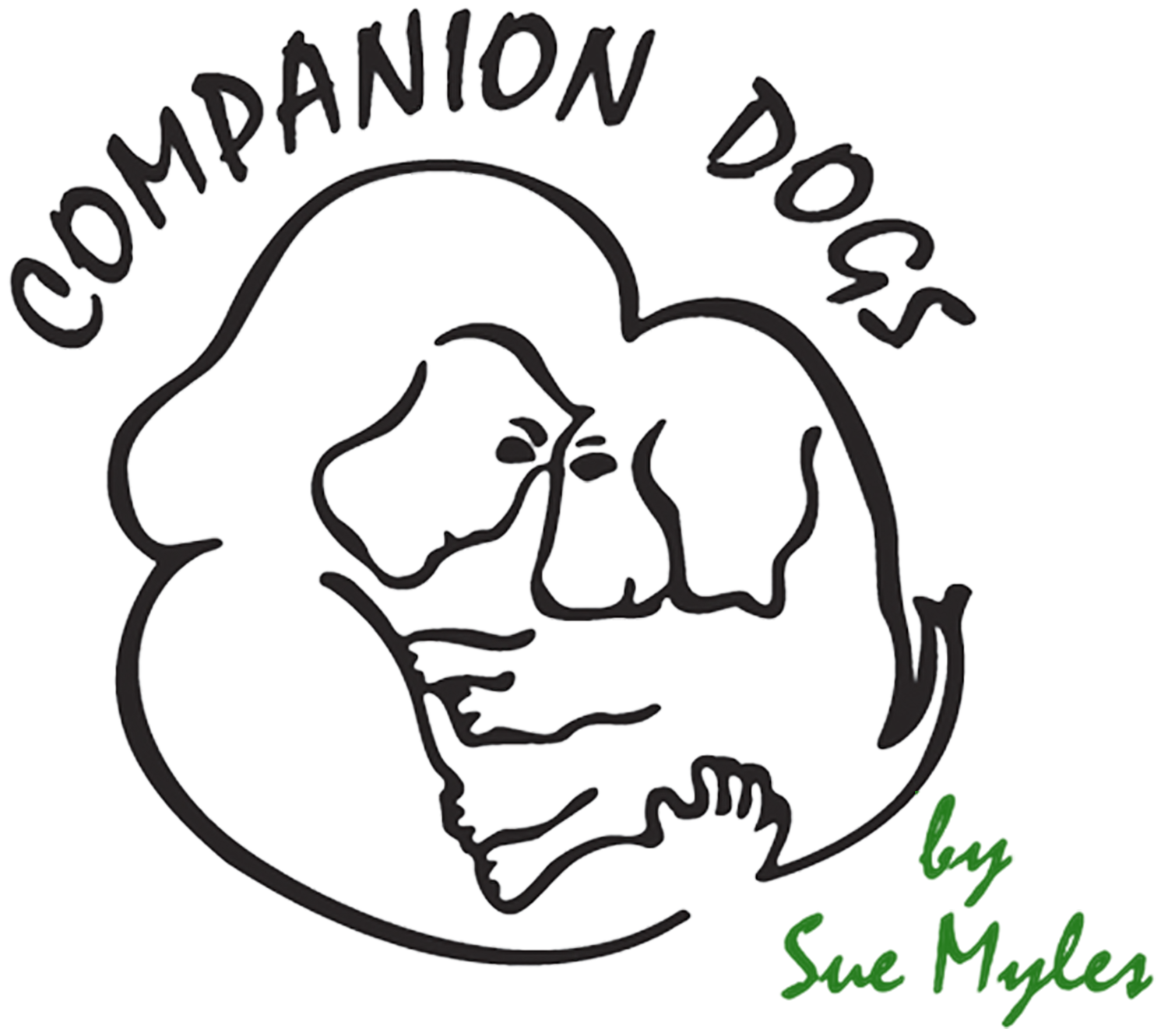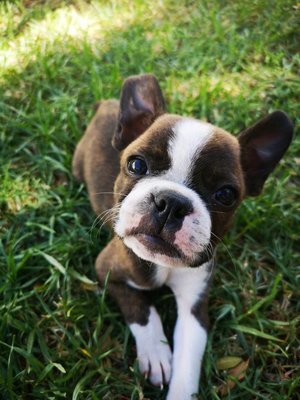Social-WHAT-tion?
THE DR. SUE SIMPLE RULES FOR SOCIALIZING PUPPIES
Visit five new environments a week.
Meet fifty kind, gentle and interested strangers a week.
All dog-dog interactions are on leash with dogs approximately the same size.
Dog play groups have no more than three dogs.
"YOU HAVE TO SOCIALIZE YOUR PUP"
"AREN'T YOU SOCIALIZING HIM YET?'
"HE HAS TO GO TO THE DOG PARK SO HE CAN SOCIALIZE WITH DOGS"
HUH? EXACTLY WHAT DOES 'SOCIALIZE' MEAN AND HOW DO WE DO IT?
What is socialization?
Introducing and familiarizing your pup to the life he’ll live as an adult. Everyone and everything he'll come into contact with as an adult needs to be on his Howdy! List. And, he needs to meet these contacts between six and sixteen weeks.
When I started Puppy Kindergarten Classes in Orange County in 1979 no one used this term. I explained the concept and taught people how to correctly socialize their pups. In those days when I was the only trainer offering puppy training owners socialized their pups correctly during the correct time. Pups regularly started class at eight weeks…and I never once had a puppy become sick.
Now, the term is badly used and abused. Loving owners who want to raise a safe, social and confidant puppy have a tough time understanding how to socialize a pup.
When is socialization most effective?
The ideal time to familiarize your pup to his future world is between six and sixteen weeks. The window of learning is wide open during these short weeks. The window closes at sixteen weeks. Waiting until your pup has 'finished his shots' to start class or socialization dooms them. Since the famous Scott and Fuller puppy raising experiments at Bar Harbor, Maine in 1954 we know that pups who do not socialize within this period have worse outcomes than pups who start their social lives between six and sixteen weeks.
Pups who come to the home after sixteen weeks need to double up on their socializing time. They are already past the 'Golden Age' of socializing. These late bloomers need extra help to make up for the lost weeks necessary to build a social, confidant dog.
It's not just dogs
It isn't just dogs your pup needs to meet. Socialization is a big, big word in the land of puppies. Think of every kind of experience your dog will have, not just the other dogs he'll meet. That's what you socialize, or familiarize, your puppy to. Riding in cars. Getting a leash and collar on. Meeting people who want to take his picture on a cell phone. The grand-children. How to go up and down stairs. How to follow you when he's on a leash.
Meeting other dogs is the least important part of the socializing game. It's the humans and the perplexing world of people that your pup needs to meet and greet.
When it is dogs
Taking a puppy to a dog park to socialize is like taking a five year old to a prison to play with the nice people in the exercise yard. Dog parks are disasters for pups. Many a pup with potential has become permanently aggressive, reactive and defensive when frightened by a group of large, adult dogs who overwhelm him. Pups need social time with pups of about the same age and ideally, about the same size. Socialize your pup with leashed pets one or two at a time.
The idea that pups should go to off leash dog play groups harms our pets. They are young and inexperienced in the world. One experience that frightens them badly can make them unable to trust dogs, permanently. When I started Puppy Classes in 1979 we had no dog parks, day care, pack walks or play groups. Puppies did better in their socializing skills when they were not thrust into situations when they were unprepared and too young.
It's not just you
Socialize, or introduce your pup, to all ages, shapes, races and ages of people. Say hello to strangers one at a time not a mob. Dogs are masterful in seeing 'what's different?' and socializing your dog to people who look different than you creates an adult dog who is more relaxed around them.
Invite the world to introduce themselves to your pup. It is a mistake to keep your pup from meeting all kinds of people in that six to sixteen week period. I often see pups who come to class far past the socialization period. These pups bark at, avoid and actively try to keep strangers away. All this misery could have been easily avoided by exposing pups to strangers in the Golden Age of socialization.
Children too
Good children make good puppies. Bad children make bad puppies. Exposure to gentle, engaged and happy-to-meet-a-puppy children helps pups like kids. Exposure to loud, chasing, grabbing, cornering kids who create pain and fear in the pup's world create kid-aggressive dogs. Pick your pup's company carefully
New environments
Pups need exposure to lots of different environments. When your veterinarian has given you the green light for away from home adventures pack up your pup and away you go. Explore and enjoy safe places to teach your pup to be at ease and emotionally stable away from home. It is not enough to take the pup on the same walk each day. Plan for two new adventures per day and a better pup you'll have.

